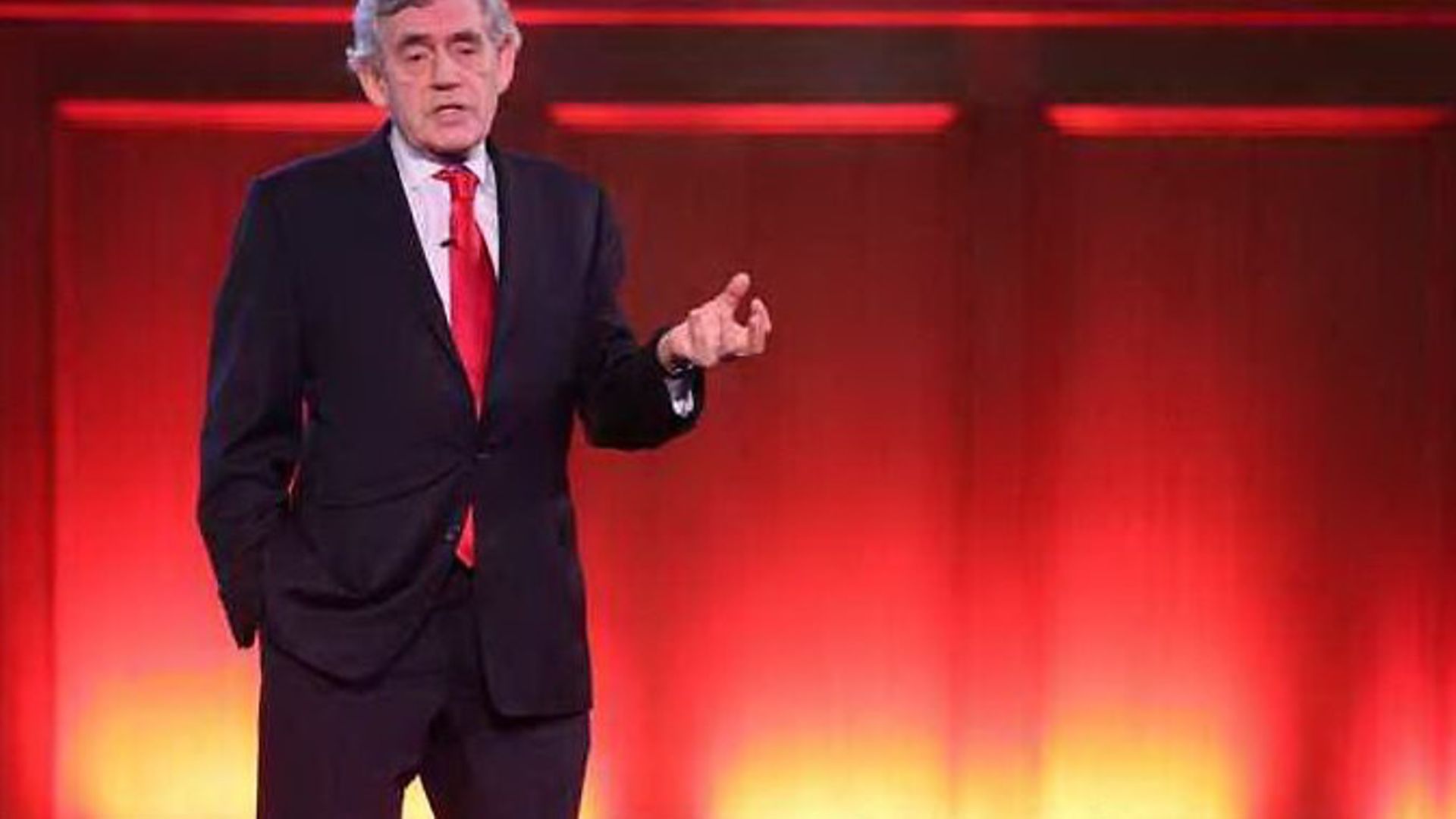
The divisions in the UK caused by Brexit are so ‘deep and pervasive’ that they could take a generation to reconcile, former prime minister Gordon Brown has warned.
He told an audience in central London the vote to leave the EU had created a “fundamental disagreement” about the Britain people want – between being inward- or outward-looking.
At the launch of Christian Aid Week at Church House in Westminster today, Brown said countries have to co-operate to solve the world’s problems such as climate change.
He added: “It raises the question of what it is to be British and this, I think, is at the heart of the debate that’s Brexit.
“It does now raise a fundamental issue and I will be honest, my worry is that the divisions in our country are now so deep and so pervasive that it could take a generation for us to reconcile these differences, bring people together and find a unified vision of our country and a sense of purpose and direction that takes us forward into the modern world.
“It is not just that parliamentary deadlock. There’s a fundamental disagreement about what kind of Britain we are trying to be.”
He said the inward vision misunderstood the “Dunkirk spirit” as meaning the UK was better when it stood “alone, aloof and apart”.
But he said: “That of course is not what Dunkirk was about – Dunkirk was about us being alone out of necessity.
“But there is a second vision of Britain, a Britain that’s open, outward-looking, engaged and not disengaged with the rest of the world. A Britain that’s internationalist in its outlook, a Britain that says that it has responsibility not just for itself.
“I believe this is a choice we have to make as a country, and I cannot see how the issue of our future can be solved unless we understand that in a more and more interdependent, more integrated world that to be outward-looking and not inward-looking, to be engaged and not disengaged, to be internationalist and not narrowly nationalist is the only way forward.”
Brown said this means showing how co-operating could “solve the problems of the world” and giving people the hope it could be done.
He said people must argue against claims there was a choice between helping people globally and helping them at home.
Brown added: “We must use this Christian Aid Week to send that message out to the communities that no matter what the criticisms of aid have been, it is not them against us.
“It is not us putting the needs of people in this country against the needs of people in other countries, that there is indeed a circle of empathy that links us here to what is happening right across the world and the people who are here and the people who we can help in other parts of the world.
“Christian Aid and all other organisations doing so much in the world need our support and should have our support.”
He said international co-operation was vital to combating climate change.
But he stressed the problem was with the depth of international co-operation and he suggested a new central authority was needed to deliver international targets.
He added: “We are one planet, we need to act together, pollution has no respect for borders.”
Brown refused to answer questions about politics and Brexit following his speech.
Christian Aid Week began in 1957 as a way of fundraising vital cash to combat poverty worldwide.
This year the charity is focusing on maternity care in Sierra Leone, where women are 150 times more likely to die in childbirth than those in the UK due to a lack of access to healthcare facilities or health professionals.
The West African country is the most dangerous place to give birth in the world, with an estimated 15,000 mothers having died during childbirth since the Ebola crisis in 2014, the charity said.










